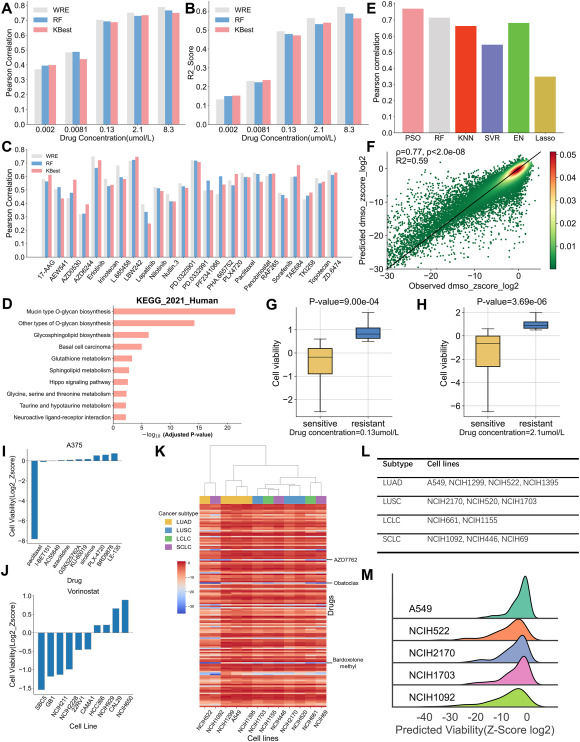
Predicting anti-cancer drug sensitivity through WRE-XGBoost algorithm with weighted feature selection


Accurate prediction of drug susceptibility is one of the most important steps in personalized medicine. Applications of machine learning to pharmacogenomic data for sensitivity prediction can help study the mechanism of drug response and find more effective anti-tumor drugs. At present, most machine learning algorithms for predicting the drug sensitivity of cancer cell lines involve gene-level characteristics. However, the auxiliary information of drugs has been proved to improve the prediction accuracy by providing a priori information for drug response. Here, we developed the WRE-XGBoost model, using gene expression of cell lines and drug properties as input, which consists of a weighted algorithm of the random forest regression and elastic net regression (WRE) to select the important features and an improved XGBoost algorithm associating with particle swarm optimization to predict cell viability (Fig. S1). The experimental results of our model were superior to frequently used machine learning methods through cross-validation.
